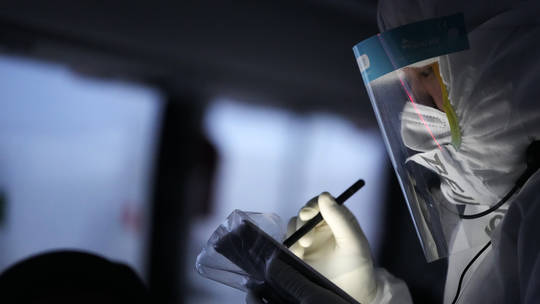The new method involves electromechanical sensors capable of detecting, with high precision, SARS-CoV-2 RNA in human genetic material, according to the study published Monday in Nature Biomedical Engineering science journal.
The new method involves electromechanical sensors capable of detecting, with high precision, SARS-CoV-2 RNA in human genetic material, according to the study published Monday in Nature Biomedical Engineering science journal.
“We implemented an electromechanical biosensor for the detection of SARS-CoV-2 into an integrated and portable prototype device, and show that it detected [the virus RNA] in less than four minutes,” the researchers said.
The study involved testing the new method on 33 samples taken from Covid-19-infected patients and 54 Covid-negative controls taken from people with influenza and fever, as well as from perfectly healthy subjects. PCR-tests were also taken.
The new electromechanical sensor showed results that matched excellently with the PCR tests, showing positive results for those infected with Covid-19 and negative for other samples. The results of the testing were received within four minutes.
The scientists say their device could allow rapid detection and easy operation in various environments including “airports, clinics and local emergency departments and even at home.”
READ MORE: IOC and WHO reaffirm collaboration to promote vaccine equity and healthy lifestyles
The expressed hope that further development of the electromechanical testing method could also allow for precise diagnosis of other diseases.
Polymerase chain reaction (PCR) testing, which is the most widely available way of detecting Covid-19 infection, takes several hours to show results and requires specific lab infrastructure that may not be accessible in many situations. Other methods of rapid diagnosing that have been developed worldwide generally produce less accurate results than PCR-testing.
